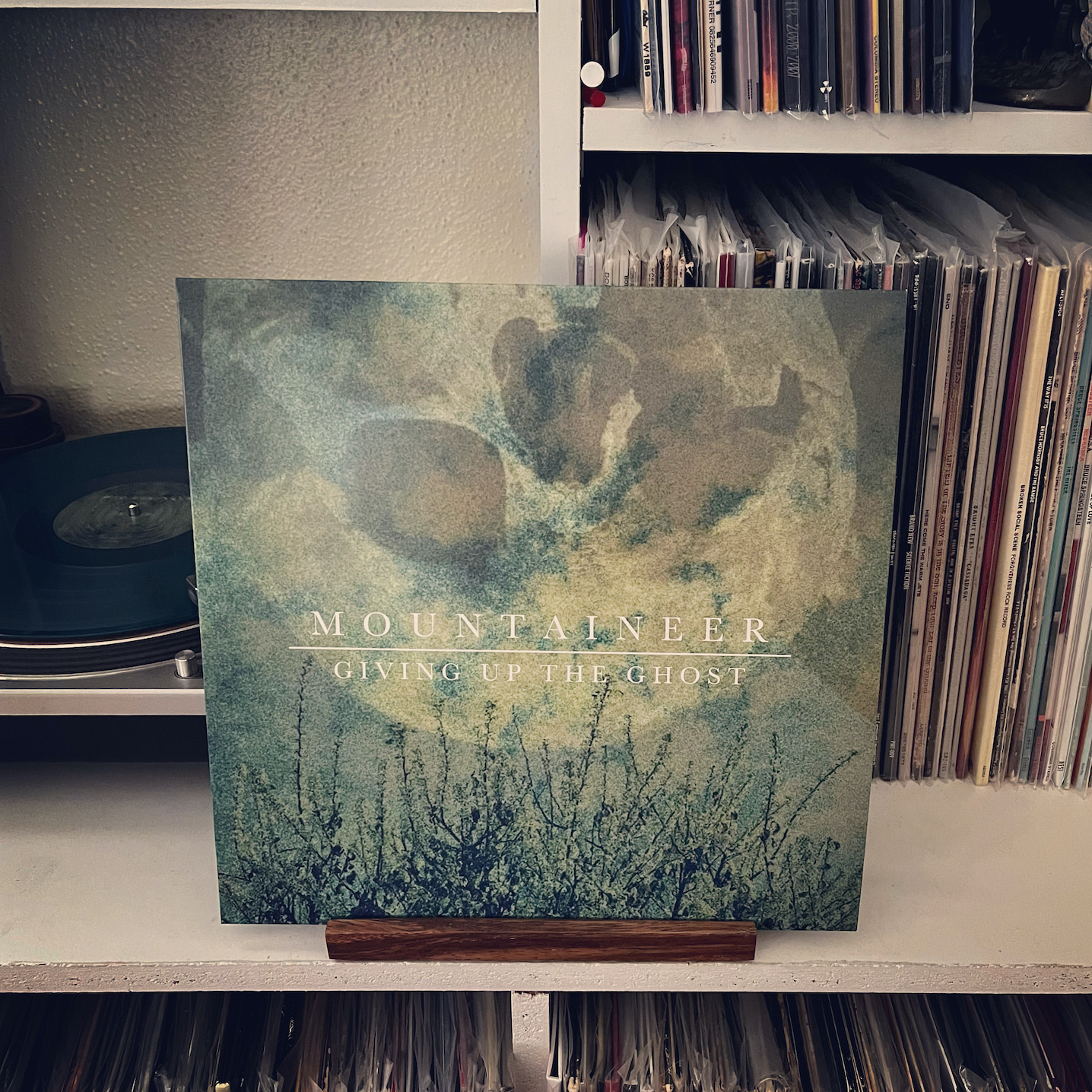
When I was first introduced to Mountaineer through their 2020 record Bloodletting, I was instantly enamored. That record is an inspiring bit of gorgeous sludge metal that transcends the emotional resonance of the genre without stretching beyond the sonic conventions laid down by Isis, Cult of Luna, and others.
So when Giving Up the Ghost was announced, I was equal parts excited and apprehensive. Bloodletting felt so singular that it might be impossible to follow up in a satisfying way. Either they make the same record and it winds up boring or they shift the formula of their careful chemistry and it doesn’t reach the same reaction. I actually waited a few weeks after it was released to listen to it because I was so nervous that it wouldn’t live up.
Since I’m reviewing my personal vinyl copy, you could probably deduce that my worries were unfounded.
Without directly listening to Bloodletting for a comparison, Giving Up the Ghost actually feels like it might be more melodic than its predecessor, without losing any of the scorched earth heaviness.
The album is bookended by two instrumentals, “The Ghost” and “Giving Up,” each a variation of the same sparkling guitar figure. Between the two, Mountaineer offers up another offering of brilliant sludge metal/post rock/doomgaze fusion. The riffs are positively crushing, driven stalwartly along by powerful drums. Vocals are split between full-throated screams, half-screamed melodies, and lighter-than-air clean vocals, but this time around it feels like the more delicate vocals are more prominent, even when the band is at its heaviest.
Also, much of it is in a major key, which ends up feeling more defiantly life-affirming than aggressive or depressive. Tracks like “Bed of Flowers” and “When the Soul Sleeps” are positively gorgeous, their heaviness countered by rich vocal harmonies and slide guitars. Closing song “Twin Flame” is almost straightforward anthemic post rock, save for the vocals.
Even the more dour tracks are deeply emotive. “Blot Out the Sun” is monumental in scope, much of its seven-and-half-minute run time spent combusting through a monumental riff. “Touch the Glass” is maybe the most creeping thing here, led by a dissonant lead guitar riff with rougher vocals taking the spotlight.
The most impressive thing about the record though is how it navigates through its shifts in mood and scale. The divisions between the tracks are subtle enough not to be noticed, especially considering that some of the longer songs morph just as significantly through their different sections. While each of these songs could stand on their own (excepting the opening and closing segues), hearing them in the context of the record is a much more rewarding experience—an experience that feels far more significant than the record’s thirty-two-minute runtime. In any case, Mountaineer has made a believer out of me. I’m already on board for whatever they do next.